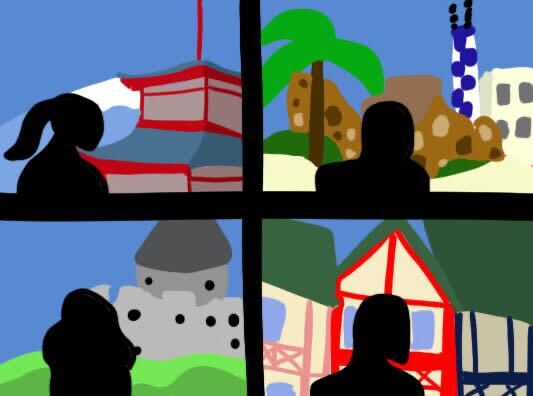Commuting fall sickness
Summer is finally over and the cold weather that comes with fall is a sign to break out winter coats and prepare for the nasty common cold. In a big city like Chicago, finding ways to protect yourself from getting one can be challenging.
Even though colds are minor infections of the nose and throat, they are caused by more than 200 different viruses, according to the American Lung Association. The organization also said that cases of common colds are highest between the months of September and May.
Colds are highly contagious and can be easily given to another person by a simple touch. Commuting during this time of year leaves others more vulnerable to getting a cold due to the number of people that are on public transit. The CTA operates 24 hours each day, with the Red Line running all the time. On an average weekday, the CTA provides 1.7 million rides on buses and trains, according to Chicago Transit Authority.
“I carry hand sanitizer everywhere,” said Riley Reed, a sophomore at DePaul University. “It’s so easy to carry a tiny thing that you can pick up at a drugstore. It’s important to not just use that but wash your hands as soon as you can. Avoid touching your eyes, nose or mouth.”
Common colds are the main reason that children miss school and adults miss work. Adults have an average of two to three colds per year and children more, according to the Centers for Disease Control and Prevention. Some common symptoms include a runny nose, congestion, sneezing, scratchy throat and coughing.
Correlation does not always imply causation, and cold weather does not cause the common cold. It is a common belief that a cold is caused by the cold weather itself. Think back to when your parents would always say not to go outside with wet hair. Freezing in cold weather doesn’t affect the duration or severity of a cold, according to Yale Scientific, an online college science publication.
“I’m proactive when it comes to staying healthy,” said Libby Wickham, a junior at DePaul. “I get the flu shot and wash my hands often. Whenever I feel something coming on, I drink a lot of tea and take vitamin C. It’s all about taking preventative measures versus reactive measures.”
The reason the cold season is seen as the main reason people get sick is that during this time of year, most people are inside. When a larger amount of people are inside, more often than not they infect each other because they’re in a concentrated area. Being inside traps the viruses that cause common colds.
“I try not to come into bare skin contact with handles, doors, etc.,” said Walker Schulz, a sophomore at DePaul. “I use my elbow to open the doors or cover my hand with my long sleeve. If it’s chilly out, I’ll wear gloves and those work great too.”
There are many things that can be done to help prevent a cold from wrecking a week of your life and they may seem simple, but if people did them the rates of colds wouldn’t be as high.
Wash your hands often with soap and water, especially after being on a train or bus all day. Millions go on them every weekend, and that is a million hands, feet and mouths going in and out of the trains. Washing your hands every time you get off or at least keep hand sanitizer on you will increase your chances of staying healthy.
If your hands are not clean, avoid touching any part of your face, eyes, nose and mouth. These are places that a virus can attach onto and then the week of coughing your lungs out occurs.
There is no cure for a cold, but getting lots of rest and drinking plenty of fluids will help the process. Water is crucial when a cold hits.
“Setting a good sleep schedule and taking time to rest is super important,” Reed said. “I think especially after getting sick in my first year of college due to overworking myself, I realize much more the importance of self-care and rest.”
It is finally cold season; time to go to Bath and Body Works and get five hand sanitizers for $7.














